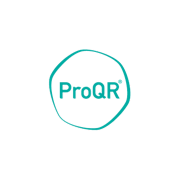Key updates
- With the clearance of the investigational new drug (IND) application by the U.S. Food and Drug Administration (FDA), ProQR can now start clinical development of QR-110 in Leber’s congenital amaurosis Type 10 (LCA 10) patients
- LCA 10 is one of the most prevalent forms of gene-related blindness in children worldwide and currently there are no therapies commercially available
- The Phase 1/2 open-label trial will assess the safety, tolerability, pharmacokinetics and efficacy of multiple administrations of QR-110 in one eye of each patient and will include approximately 6 adults and 6 children with LCA 10
- Top-line trial results are expected in 2018
LEIDEN, the Netherlands (GLOBE NEWSWIRE) — ProQR Therapeutics N.V. (Nasdaq:PRQR) today announced that the Company can start the Phase 1/2 trial for QR-110, named PQ-110-001, in Leber’s congenital amaurosis Type 10 (LCA 10) patients. QR-110 is a novel investigational RNA therapeutic targeting LCA 10 due to the p.Cys998X mutation, a severe genetic rare disease that causes children to lose sight in the first years of life. LCA 10 is one of the most prevalent forms of gene-related blindness in children worldwide and currently there are no therapies commercially available.
“We are pleased to initiate clinical trials for QR-110 for the treatment of patients with LCA 10. This first trial in this rare, genetic disease will allow us to study multiple doses over one year’s time and evaluate safety, tolerability, as well as demonstrate if QR-110 can improve vision or prevent loss of vision in patients affected by this devastating disease,” said Noreen R. Henig, MD, Chief Medical Officer of ProQR. “Importantly, this trial is the first in ProQR’s ophthalmology pipeline, which also includes programs targeting Ushers syndrome and Fuchs endothelial corneal dystrophy (FECD).”
“We are very excited to participate in this trial that has a unique approach in targeting LCA 10,” said Stephen R. Russell, Professor of Ophthalmology and Visual Sciences at the University of Iowa Hospitals & Clinics and Principle Investigator of Study PQ-110-001. “We were very encouraged given the promising pre-clinical data for this compound and its potential to make an impact to a disease that has no treatments.”
“Advancing QR-110 into a clinical trial in patients marks another important step in our quest to bring RNA medicines to patients in need,” said Daniel A. de Boer, Chief Executive Officer of ProQR. “The QR-110 program is very important in the validation of our promising ophthalmology pipeline, which has programs targeting several inherited blindnesses. In our strategy to build ProQR into a sustainable company with a balanced risk profile, we’ve established a diversified portfolio with our lead program QR-010 for cystic fibrosis, QR-110 for LCA 10 and QR-313 for dystrophic epidermolysis bullosa. Moving QR-110 into clinical development contributes to the maturity of this diversification. We plan to have established clinical proof of concept in patients in all three of these development programs before the end of 2018.”
About the PQ-110-001 Study
PQ-110-001 is an open-label trial that will include approximately 6 children (age 6- 17 years) and 6 adults (? 18 years) that have LCA 10 due to one or two copies of the p.Cys998X mutation. During the trial, patients will receive four intravitreal injections of QR-110 into one eye; one every three months for one year. The eye that does not receive injections is the control. The QR-110 trial is expected to be conducted in three centers with significant expertise in genetic retinal disease in the US and Europe.
The primary endpoints will be safety and tolerability. Secondary efficacy endpoints will assess the pharmacokinetics and restoration/improvement of visual function and retinal structure through ophthalmic tests such as visual acuity, full field stimulus testing (FST), optical coherence tomography (OCT), pupillary light reflex (PLR), mobility course and fixation stability. Changes in quality of life in LCA subjects will also be evaluated. Top-line results from the trial are expected to be available in 2018.
About ProQR
ProQR Therapeutics is dedicated to changing lives through the creation of transformative RNA medicines for the treatment of severe genetic rare diseases such as cystic fibrosis, Leber’s congenital amaurosis Type 10 and dystrophic epidermolysis bullosa. Based on our unique proprietary RNA repair platform technologies we are growing our pipeline with patients and loved ones in mind.
*Since 2012*
About QR-110
QR-110 is a first-in-class investigational RNA-based oligonucleotide designed to address the underlying cause of Leber’s congenital amaurosis Type 10 due to the p.Cys998X mutation in the CEP290 gene. The p.Cys998X mutation is a substitution of one nucleotide in the pre-mRNA that leads to aberrant splicing of the mRNA and non-functional CEP290 protein. QR-110 is designed to restore wild-type CEP290 mRNA leading to the production of wild-type CEP290 protein by binding to the mutated location in the pre-mRNA that results in normal splicing of the pre-mRNA. QR-110 is intended to be administered through intravitreal injections in the eye and has been granted orphan drug designation in the United States and the European Union.
About Leber’s Congenital Amaurosis Type 10
Leber’s congenital amaurosis is the most common cause of blindness due to genetic disease in children and consists of a group of diseases of which LCA Type 10 (LCA 10) is one of the more severe forms. LCA 10 is caused by mutations in the CEP290 gene of which the p.Cys998X mutation is most common. LCA 10 leads to progressive loss of vision causing most patients to lose their sight in the first few years of life. To date, there are no treatments approved or products in clinical development that treat the underlying cause of the disease. Although prevalence rates vary, we believe approximately 2,000 people in the Western world have LCA 10 because of this mutation.
